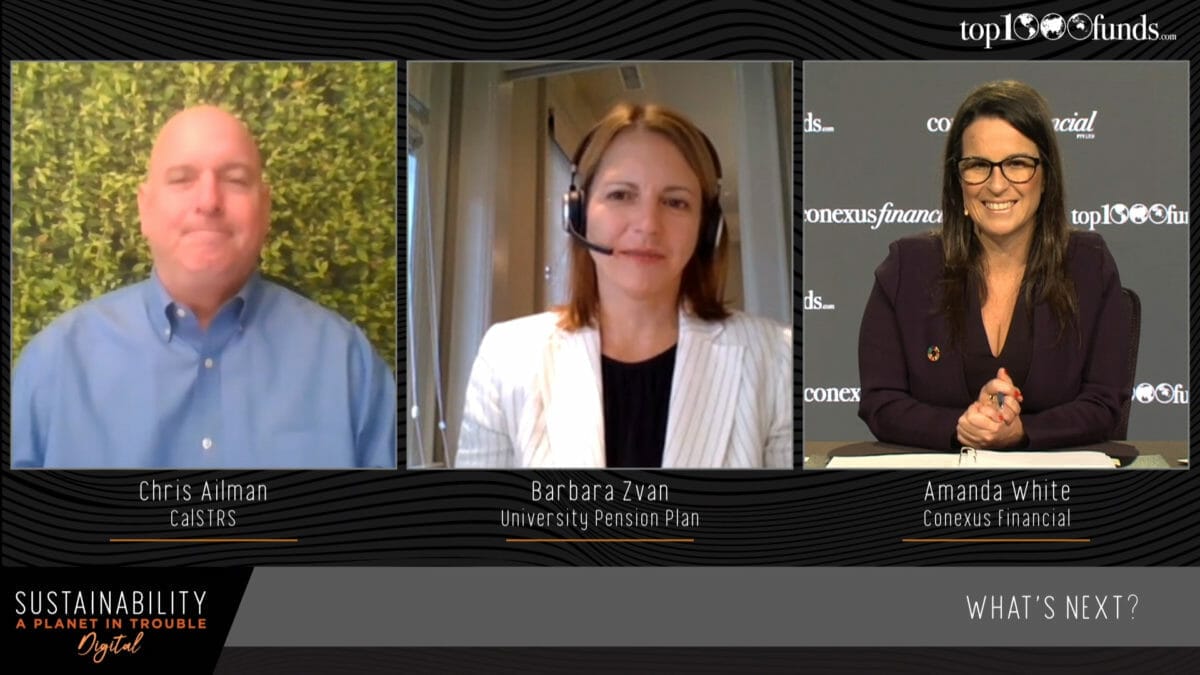The COVID-19 crisis has presented an opportunity to reshape a future which is green, inclusive and sustainable. Through the recovery and the years that follow, PRI will be working with investors to help realise this more prosperous reality. This will include an emphasis on moving beyond risk and return to include real-world impact, a focus on social issues and more ambitious stewardship practices as well as strong action on climate. This session outlines how the PRI is calling on the global investor community to help in building back better.
Fiona Reynolds is the chief executive of the Principles for Responsible Investment (PRI) and has responsibility for its global operations. Appointed in 2013, she has 25 years' experience in the financial services and pension sector. Reynolds joined the PRI from Australian Institute of Superannuation Trustees (AIST), where she spent seven years as the chief executive, working within the Australian superannuation sector and played an active role in advocating pension fund policy and participated in a number of government committees and working groups on superannuation and retirement incomes policy. She serves on the board of the UN Global Compact, she is the chair of the Financial Services Commission into Modern Slavery and Human Trafficking (The Liechtenstein initiative), which has been developed by the United Nations University Centre for Policy Research (UNU-CPR) and supported by the Government of Liechtenstein and. Reynolds is also a member of the International Integrated Reporting Council (IIRC), the Global Advisory Council on Stranded Assets at Oxford University, the UN Business for Peace Steering Committee, the Global Steering Committee for the investor agenda on climate action and the Steering Committee for Climate Action 100+ which is the largest ever investor engagement with listed companies. She has been a member of the UK Government Green Finance Taskforce. In 2018 Fiona was named by Barron’s magazine of one of the 20 most influential people in sustainability globally and by the Australian Financial Review of one of Australia’s 100 women of influence for her work in responsible investment globally. She has formerly been a pension fund director/trustee of AUSfund and been on the boards of Industry Funds Credit Control, Australia for UNHCR, the Australian Council of Superannuation Investors and the National Women in Super Network. In September 2012, she was named by the Australian Financial Review as one of Australia’s top 100 women of influence for her work in public policy.
Tate has been an investment industry media publisher and conference producer since 1996. In his media career, Tate has launched and overseen dozens of print and
electronic publications. He is the chief executive and major shareholder of Conexus Financial, which was formed in 2005, and is headquartered in Sydney, Australia.
The company stages more than 20 conferences and events each year –
in cities which have included London, New York, San Francisco, Los Angeles, Amsterdam, Beijing, Sydney and Melbourne – and publishes three media brands,
including the global website and strategy newsletter for global
institutional investors conexust1f.flywheelstaging.com. One of the company’s signature events is the bi-annual Fiduciary Investors Symposium. Conexus Financial’s
events aim to place the responsibilities of investors in wider societal, and political contexts, as well as promote the long-term stability of markets and sustainable
retirement incomes. Tate served for seven years on the board of Australia’s most high profile homeless charity, The Wayside Chapel; and he has underwritten the
welfare of 60,000 people in 28 villages throughout Uganda via The Hunger Project.
Key takeaways
- The world has finally woken up and realised the importance of sustainability. We have the opportunity to leverage the crisis to build back better.
- ‘The SDGs are the business plan and North Star for the world. We don’t need a new plan, we just need to execute on and invest in the existing plan.’
- We are accelerating into the era of Responsible Investment 2.0 or 3.0, which means shifting the dialog from risk/return to risk/return/real world impact.
- In the past, social issues have been treated as the poor cousin of ESG and this cannot continue to be the case. Many investors are still unclear on how best to fulfil their responsibilities on human rights. PRI’s aim is to raise awareness of human rights obligations, as has been done with climate over the past 5 years.
- Legal frameworks need to evolve to help investors implement sustainability outcomes.
- Further work is required around data to ensure we can better measure risk and impact.
- We aim to usher in a new ambitious era of stewardship. We cannot engage on everything so let’s get on the same page and focus on the most pressing systemic issues facing the world. Asset owners and corporates can help by signing up to the net zero commitment.
- PRI’s next evolution of reporting will focus more on outcomes, not just process.
- PRI wants to be a big tent organisation that works with all parties, not just the leading parties. Nonetheless, PRI intends to raise its minimum standards for ratings and new signatories.
- I’m not sure we will hit the targets across all 17 SDGs in the next decade but I’m confident we will make significant progress for people and planet.





